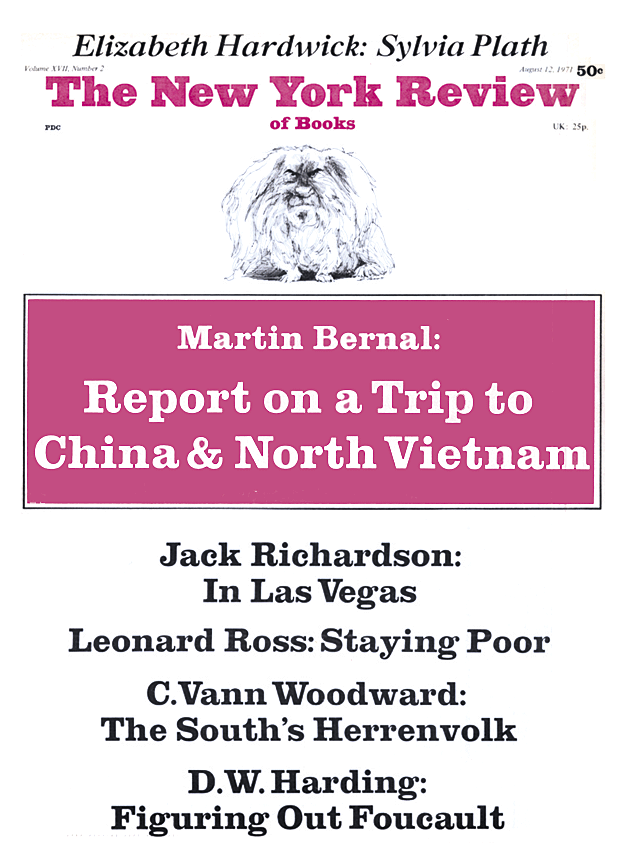In response to:
War Crimes from the July 1, 1971 issue
To the Editors:
In your issue of June 27 you have kindly published a letter of Mr. Truesdell and Mrs. Johnson, addressed to the Bertrand Russell War Crimes Tribunal.
I, shall be grateful if you could publish the Tribunal’s answer to the request of Mr. Truesdell and Mrs. Johnson.
Jean-Paul Sartre
Switzerland
Dear Mr. Truesdell and Mrs. Johnson,
- At our meetings in Strasbourg and Colmar, July 5 and July 10-11, we have studied your letter of March 29, 1971, proposing that the Bertrand Russell War Crimes Tribunal should resume its sessions, in order to take up the question of individual responsibility for war crimes in Indochina and to examine the process of decision-making in the Indochina war by the American political and military leadership with particular reference to the My Lai massacre and other war crimes.
- We have also studied a legal brief, prepared by our experts, on the legal aspects of the issue of the individual responsibility for the war crimes, both from the point of view of international law, as well as the American domestic law.
-
Since you wrote your letter (end of March) we have witnessed many cases of the growing awareness of the American people against the aggression of the USA Armed Forces in Indochina: the great March on Washington, mass protests in many USA cities, the actions of the veterans of the Vietnam war, etc., etc.
The publication of the Pentagon papers has also helped the American people to understand better how it was duped by several of its Administrations and how an aggressive war was prepared and carried on. These papers show the degree of responsibility of political and military leaders of the USA, but they destroy also the illusion that things would be different, if only other individuals were involved. A logical conclusion could be, also, that radical changes are necessary in the USA institutions and in people’s thinking, in order to stop what is going on, and to prevent similar occurrences of the aggressions abroad.
- Since you wrote your letter, many individuals and organizations in the USA are asking for the establishment of citizens’ commissions of inquiry about the war crimes in Indochina and the responsibility of the USA military and political leadership for these crimes.
But it seems that one or more hearings will take place under liberal or social-democrat sponsorship. We have studied especially the programs of these hearings. There is a danger that some of these hearings will tend to focus on war crimes in the traditional way, that is, on certain acts of war which are defined as illegal by traditional international law, but will leave other acts of war admissible.
We think it would be important for such hearings to go beyond the acts committed during the war, to the act of making war itself, to the act of aggression, to go beyond individual atrocities to the atrocity of aggressive war as such, to the war crime of genocide being applied in Indochina by the USA imperialism.
Such hearings, we believe, should not focus primarily on the individual (although individual actions must inevitably be brought out and analyzed), but on the system—economic and political—which is responsible, e.g., on the inherent and driving forces of the American imperialism.
- For all the above mentioned reasons, and in the first place due to the fact that the American antiwar movement is so strong—it is one of the most heroic examples of internationalism in our era—we think that the actions of our Tribunal at this stage and solely on the question of individual responsibility would be unnecessary.
Jean-Paul Sartre
Exec. President
Vladimir Dedijer
President of Sessions
Bertrand Russell War Crimes Tribunal
This Issue
August 12, 1971


